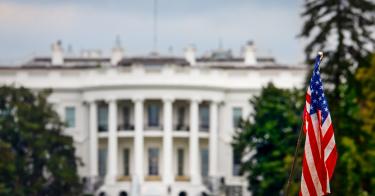Donald Trump is producing the kind of shoot-the-moon economic recovery that we last saw under Ronald Reagan in the 1980s. He’s copied a lot of the Reagan playbook: Deregulate, cut taxes, promote American energy. He should also think about adopting another Reaganite initiative: Let American companies, grow, merge, restructure and become more profitable so they can compete on the global stage.
In other words, bench the trust busters.
One of President Reagan’s first and wisest initiatives was to effectively shutdown the anti-trust division of the Justice Department. Whereas Jimmy Carter had aggressively pursued anti-merger activity — the imbecilic case against AT&T was prosecuted under President Carter — Mr. Reagan understood the virtue of allowing companies to exploit the synergies of mergers to gain efficiency and lower costs.
Mr. Carter and Mr. Obama blocked the most mergers. Mr. Reagan cut the rate of antitrust enforcement in half. Mr. Clinton also had a light touch when it came to approving mergers and acquisitions. Is it an accident that the stock market exploded in these years?
The historical evidence shows that shareholders usually greatly benefit from mergers. The companies that do the acquiring typically see a rise in their stock price over time. The even bigger beneficiaries are the shareholders of the companies that are being acquired. Successful M and As require companies to offer shareholders a stock price above the current traded price. Given that more than 100 million Americans own stock — as do all pension funds in America — it’s not clear why this isn’t a win-win for everyone.
The counter-argument, of course, is that monopolistic hobgoblins will raise prices on consumers. Google, Facebook, Amazon, Apple and so on, are said to be taking over the world.
President Trump has tended to side with the big is bad crowd. Just last week Bloomberg reported that the Justice Department may block parts or all of the $62 billion dollar merger between Bayer and Monsanto. Similarly, the Trump administration case against the $85 billion AT&T- Time Warner merger goes to trial soon. Wait a minute. Can anyone really believe that there is a danger on monopoly in the entertainment, phone and TV industry? Every American with a camera and a cell phone and a Facebook account is a media player. Cable TV now competes with YouTube, satellite TV, Netflix and hundreds of other entertainment outlets.
As for the Bayer and Monsanto merger, this marriage can leverage massive knowledge and talent to bring new innovations to market for farmers and consumers both here at home and abroad (i.e. where we must aggressively compete to sell our agricultural products). Bayer-Monsanto strength in crop protection will be married with the innovations in seeds and traits. The new firm has promised to invest $8 billion in America — so this could mean more, not less, jobs.
Just as the Dow and DuPont merger has allowed America to retain world leadership in chemicals, the Monsanto-Bayer merger would ensure that the U.S. is firmly positioned long-term as the life sciences capital of the world.
If the Justice Department blocks the merger, the big winner might be China, whose state-owned enterprises might swoop into this space. That hardly puts America first.
This isn’t 1900 when Standard Oil and U.S. Steel were thought to be taking over the world and gouging consumers. U.S. Steel? It’s 2018. Global competitiveness because of trade and technology are always bringing the next big thing. Competition and the quest to lower prices has never been more cut-throat. Mergers and hostile take overs also help eliminate the flab, inefficiencies and sometimes excessive salaries and benefits of fat and happy corporate management.
Companies like Microsoft, IBM and General Motors — businesses that were once thought by Justice Departmentofficials to be gobbling up the marketplace like Pac Men — are today facing swarms of domestic and international competitive forces. Today Google and Amazon are on top of the world and seem indomitable. Twelve years from now they could be the next Circuit City or Sears Roebuck.
Bigger isn’t always better. Some mergers, as the famous Quaker Oats purchase of Snapple are multi-billion dollar failures. But these are decisions for shareholders to make, not government anti-trust cops who are like hammers who view every merger as a nail they want to pound into submission.
It was Barack Obama who promised to direct his administration “to reinvigorate antitrust enforcement,” since “antitrust is the American way to make capitalism work for consumers.” As usual, he had it backwards. Free market capitalism always works for consumers. It’s government edicts and regulations that are the enemy of consumers and the friends of our international adversaries.
This piece originally appeared in The Washington Times



